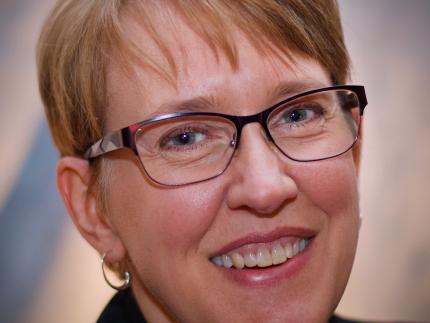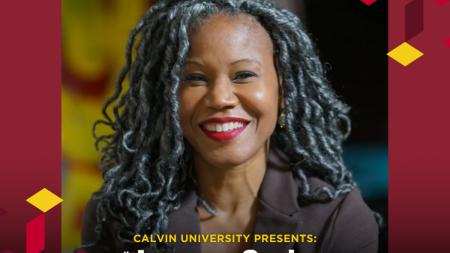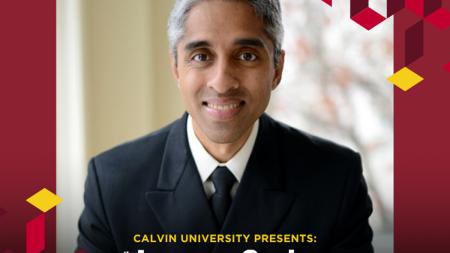Women Awaiting Call Support Each Other

Becky Tjapkes
Waiting for a call to ordained ministry and looking for some help in finding her way, Becky Tjapkes signed up to attend a Women's Ministry Leadership cluster group via Zoom last year.
The Zoom discussion included women already in ministry as well as women who were also awaiting calls. While she appreciated interacting with women serving in ministry, it was the women waiting to find an ordained position whose stories resonated most deeply with her.
Afterward, she wondered if any of those women might be interested to meet via Zoom to share their concerns, challenges, and circumstances.
In collaboration with others, Tjapkes came up with a statement for the purpose of such a group: "We seek to build connections between women leaders in the denomination and grow our networks, working together to gain support, increase knowledge, and imagine new ways to serve and/or seek a call in the CRC."
In April, the first “Women in Transition” group meeting took place on Zoom, with Tjapkes as facilitator. Three women attended. Six joined together online for the group’s second meeting in May. “So far, this has been well received. We are building a network and brainstorming how we can work together,” said Tjapkes, who lives in West Michigan.
Denise Posie, who is soon to retire as director of Leadership Diversity for the CRCNA, said she has been grateful to see this group begin to gather; it clearly fills a need.
“When I became aware of women eligible and waiting for a call, I connected with them via phone or arranged for a Zoom conversation to check-in to see how they were doing and to hear their stories,” said Posie.
“I was involved in posing a question on the Network to seek feedback from churches and pastors about ways they have supported women and ethnic minorities in the search process. Although I haven’t met Becky face-to-face, we both saw the potential for women to support women by having relevant discussions.”
Over the past 20 or so years, there has been an increase in the number of congregations that will consider a woman in an ordained position in the CRCNA. And the number of women in solo pastor positions is certainly greater now than it was, said David Koll, the CRCNA’s director of Candidacy.
“Yet,” he added, “there is still a female candidate experience that male candidates do not have: that of being eliminated from consideration because of their gender. Thus, female candidates are challenged with the task of displaying graciousness and patience in a unique way. And for most of us, displaying patience and graciousness is difficult in situations where we don't feel accepted or affirmed.”
Koll met with the women in Tjapkes’s group over Zoom, as did David Den Haan of the CRCNA’s Pastor Church Resources office.
Den Haan said he was surprised to learn that finding “a place in which to do ministry continues to be a challenge for women in the CRC. I would have thought and hoped that the number of opportunities for ordained women to use their gifts in the church” had increased over the two decades since women have been able to serve in ordained positions, he said.
In the CRC, individual churches have the option of whether or not to accept women to serve in ordained ministry.
One of the realities women seeking pastoral positions seem to face, Den Haan added, “is that when they encounter a church job opening, their initial contact with the church may lead to a related conversation within the church about its readiness to accept a female pastor. It's an important conversation.”
Then that can mean, he said, “that the conversation about the job opening, the main conversation that the female ministry candidate wants to have, is side-tracked to some degree. Energy that would have gone into that conversation is redirected toward a conversation about the church's policy and practice regarding women in office. It's just one of a number of challenges faced by women seeking ordination.”
Tjapkes grew up in the Assemblies of God denomination, and she joined the Christian Reformed Church after attending Calvin University where she met her husband, Paul. She worked for several years as a social worker and raised a family before sensing God’s call to ministry.
“I was involved in a discipleship ministry when I felt God calling me,” she said. “I enrolled in Calvin Seminary and graduated in 2018.” Upon graduation, as she started seeking a position in a church, she found herself facing more challenges than she would have predicted, she said.
Once she started to pay attention to the listings of churches seeking a pastor to serve in some ordained capacity, she began to see that many stated they only wanted to interview men. And considering the few opportunities she has had to apply, she wonders if being a woman put her out of the running.
“I began to ask, ‘If God brought me to this place, to something I would not have chosen on my own, why hasn’t something happened?’”
Of concern to her, she added, is that gifted women — some of them in the online group — may have to go outside the CRC — and thus deny the CRC their gifts for ministry — to find a position.
Other women in the transition group have faced challenges as well.
Betsy De Vries, who lives in Ontario, said she entered seminary with a desire to do outreach ministry or to work in a parachurch organization. She thought ordination might be a possibility, but it was not really a priority when she began.
“My sense of calling to pastoral ministry started to shift after taking my first preaching course at Calvin Seminary. When I preached my first sermon, it felt like I was stepping into my real skin — I was doing what God created me to do,” she said.
A number of professors and classmates encouraged her to continue developing her preaching skills, “reinforcing my evolving sense of internal call to congregational ministry,” she said.
During an internship in a congregational ministry setting, she had the opportunity to preach regularly and to be involved with planning worship — and loved it, she said.
“Over the course of my four years at Calvin Seminary, my internal call became unmistakable, and that was confirmed by pastors, professors, classmates, and family.”
But there have been challenges. Among them: she and her husband became candidates for ministry at the same time, in 2016.
“At that time we were unable to find a church that would call us to ministry together, so I decided to pursue a Ph.D. in homiletics while my husband took a call to serve his first church,” she said.
Her desire has always been to serve a church, but she said she and her husband are constantly navigating how to both fulfill their callings and steward their gifts “while also raising two young children together.”
More specifically, she added, “I have had a hard time finding a church that is both open to women [as pastors] and open to calling a candidate. My experience in applying for jobs has been that many churches that are open to women also want 5-7 years of ministry experience, especially if it is a lead/solo pastor position in which the pastor will be preaching regularly.”
Now that she has completed her Ph.D., she said, her husband is especially adamant that they wait to find a position where she can use her gifts for preaching and continue to dig into homiletic scholarship.
“But the location has also been a factor for us, because it is important that we end up somewhere where both my husband and I can find opportunities to work in ministry settings,” she said.
Commenting on the group that meets on Zoom, she said, “I appreciate this group because the other women in it know what it's like to wait, and many also know what it's like to experience a lot of rejection despite being qualified and gifted.”
There are also some other women who, like her, she added, “are navigating different dynamics around being a mother and wife as well. We can share openly about our frustrations and questions without having our intentions or callings called into question. [The group] has been a gift.”
Posie notes that Women in Transition will soon be listed on the “For Clergy Women” page at crcna.org/womensministry.


